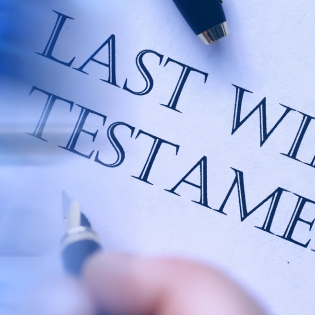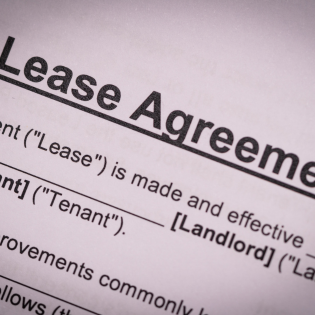Is it such a big deal to not have a Will?

Is it such a big deal to not have a Will? The Intestacy Provisions explained the answer to this question depends upon how you wish for your assets to be distributed on your death. Let’s first take a look at the law.
If you die without a Will, the Intestacy Provisions apply. These are broad brush directions for distributing your assets on the basis of how the average man and woman would want their assets distributed. This means that your assets will pass to your family as follows:
If you are married or in a civil partnership, your assets will pass to your spouse or civil partner. If you have children and your assets are worth more than £270,000 (for deaths from 6th February 2020), then your spouse or partner only receives the first £270,000 and any personal belongings. The rest of your assets would be split as to 50% to your spouse/partner and as to 50% to be split equally between your children.
If you aren’t married or in a civil partnership, your assets pass to your children first. If your children die before you, leaving children of their own (your grandchildren), then they inherit their parent’s share in your estate. Where you die leaving no spouse or civil partner, children or grandchildren, then there is a fixed list of possible classes of people who can inherit, starting with your parents and ending with your half aunts or half uncles (or where they have predeceased, their children). In the event of there being no surviving family, then your assets will ultimately pass to the Crown.
So, if you are happy with your assets to be distributed in this way, then it isn’t such a disaster to not have a Will. But you should give thought to the below when making a decision about whether to rely solely on the Intestacy Provisions.
A Modern Family
The Intestacy Provisions do not take into account the myriad of relationships in a family. A partner with whom you have not married or entered into a civil partnership is not included in the Intestacy Provisions, so they will receive none of your assets.
Likewise, step families are not catered for under the Intestacy Provisions. Take this example –
John and Anne are married, both have children from previous relationships. John dies with no Will. All of his assets pass under the Intestacy Provisions to Anne. Anne dies some years later having not made a Will. The Intestacy Provisions apply, and state that Anne’s estate pass to her children, and so, John’s children receive nothing. It’s likely this was never actually intended by either John or Anne during their lifetimes, but without a Will, the Intestacy Provisions apply. John and Anne could have avoided this by making Wills.
Carers, close friends and relations by marriage, are also not included within the Intestacy Provisions.
Children
The Intestacy Provisions do not deal with the appointment of guardians for your children. If you want to ensure that you children are looked after by a certain person, then you should make a Will including that appointment.
Until your children are aged 18, they will not directly receive your assets. Instead your assets will be held on behalf of your children by your Trustees. These Trustees will usually be your spouse or your children’s other parent, but under the Intestacy Provisions you will not be able to pick who does this job. If you wish to appoint who should look after your children’s inheritance, then you should make a Will including that appointment.
You can also include who should look after your dog or cat in your Will!
Asset Ownership Pot Luck
There are times where the Intestacy Provisions leave your family in an “asset ownership pot luck” situation. For example, where you are living with a partner but aren’t married or in a civil partnership, you might hold your home as tenants in common. This is a way of co-owning your property. It means that on death, your share in the property is distributed in accordance with your Will or the Intestacy Provisions. Where it’s distributed via the Intestacy Provisions, your partner could end up co-owning their property with all of your brothers and sisters, which could provide a number of practical problems for all involved.
Charities
It might be that you decide you don’t want any of your assets to pass to your family members or any individuals. But you might have a favourite charity that means a lot to you, perhaps they helped you or a loved one during a difficult time in your life. If so, you will need to make a Will to ensure that charity receives your assets.
If you would like advice as to whether the Intestacy Provisions would be a concern given your circumstances, or if a loved one has passed away with no Will and you would like advice as to how their assets should be distributed and who is entitled to deal with their assets, then do contact me for a free no-obligation consultation on 03300 242420 ext 17 or email me at samantha.downs@nexa.law







